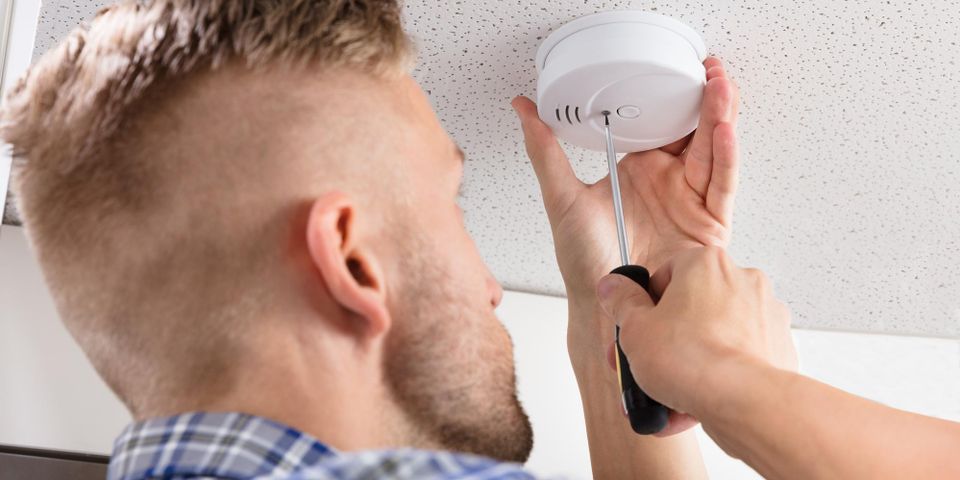Common Questions About Carbon Monoxide Detectors

Carbon monoxide (CO) is a colorless, odorless gas that forms when fossil fuels like gasoline, kerosene, and natural gas fail to combust completely. Incomplete combustion can occur for a variety of reasons, including a malfunctioning heating system, poorly ventilated fireplace, or blocked chimney. This gas is poisonous to humans, which is why all households need CO detectors. Here’s what you should know about these essential safety devices.
What should I do when the alarm sounds?
Gather your household and move everyone outside to fresh air. Perform a head count to make sure no household members remain in the house. If you can’t get outside, move everyone to an open door or window.
Call 911 and explain that your CO detector’s alarm has sounded. The emergency responders will inspect the situation and check each member of your household for symptoms of CO poisoning. Don’t go back indoors (or move away from the open door or window) until the emergency responders have declared that it’s safe to do so.
Where should I place detectors?
 To ensure all members of your household can hear the alarm, place a detector in or near every bedroom, sleeping area, and common room on each level of your home. At a minimum, a house should have one detector per floor, including the basement.
To ensure all members of your household can hear the alarm, place a detector in or near every bedroom, sleeping area, and common room on each level of your home. At a minimum, a house should have one detector per floor, including the basement.
Don’t place them near fuel-burning heating systems, in direct sunlight, or in areas subject to extreme temperatures or extreme humidity, dust, dirt, or grease, such as kitchens, unfinished attics, or garages.
In addition, don’t place detectors near ceiling fans, air conditioners, fresh air returns, open windows, or other sources of turbulent air. You also shouldn’t install them in outlets obstructed by curtains or other objects. These conditions could interfere with the unit’s function.
When should I replace a CO detector?
Most CO detectors last between five and seven years, though you should consult your model’s instruction booklet for a more specific life span. To ensure all detectors are in good working order, test them at least once a month. If they have replaceable batteries, change them at least every six months.
Not all CO detectors offer the same reliability. The team at Anderson Automatic Heating & Cooling provides high-quality devices to keep households throughout Cincinnati, OH, healthy and safe. In business for more than 90 years, these licensed and bonded contractors also specialize in heating systems, air conditioners, and all of your other HVAC needs. Visit them online to learn more about their CO detectors and other offerings. Call (513) 574-0005 to discuss your needs with a friendly team member.
About the Business
Have a question? Ask the experts!
Send your question

